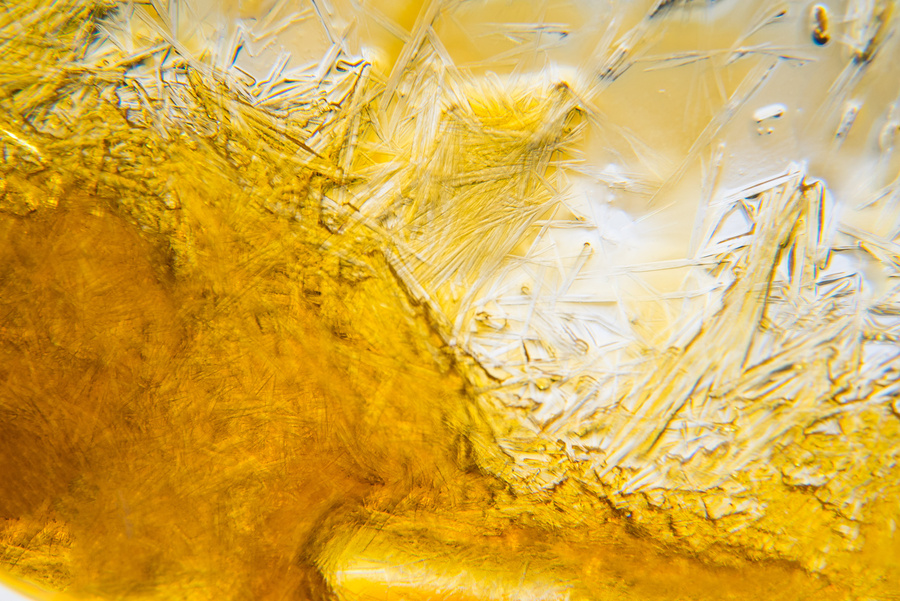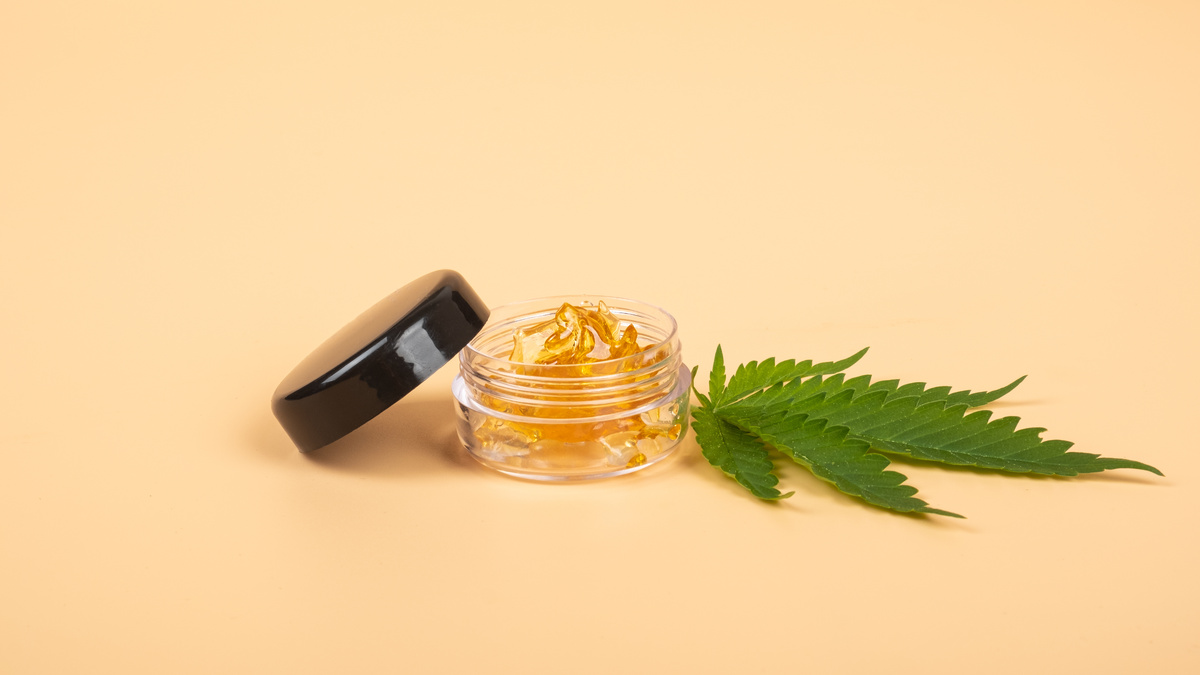Glass concentrate jars offer better storage for rosin because they preserve potency, flavor, and freshness for longer. For concentrate producers and brands, choosing between glass and plastic can impact shelf life, terpene quality, and compliance with regulations.
This guide compares both materials and explains why concentrate glass jars are the top choice for storing high-quality cannabis extracts.
1.) Terpene and Cannabinoid Integrity
Glass jars for concentrates are the best option for preserving the flavor and strength of cannabis extracts. These containers are non-porous and chemically inert, which means they won’t react with your rosin or absorb its delicate compounds.
Plastic, on the other hand, can trap sticky trichomes, attract dust through static, and even leach chemicals that weaken the concentrate’s profile. Over time, plastic may cause terpene loss, resulting in dull aroma and reduced effects.
Concentrate glass jars offer a clean, stable environment that locks in the full aromatic and cannabinoid profile. For extractors (whether small-batch or commercial), the difference is noticeable. Glass helps keep your rosin in its original state, preserving that fresh-pressed scent and texture without risk of contamination.
2.) Airtight Seal and Oxidation Control
An airtight seal is key to preserving a concentrate’s quality over time. Premium glass concentrate dab jars with child-resistant, gasket-lined lids offer a tight seal that limits air exposure. This is important because oxygen causes oxidation, which breaks down terpenes and cannabinoids, reducing potency and flavor.
Plastic containers often lose their airtightness as they age. Warping or weak seals let oxygen in, speeding up degradation. When shopping for wholesale glass concentrate jars, choose those with vacuum-seal or pop-seal features. These technologies help maintain freshness by keeping oxygen out and locking in terpene stability.
Using bulk glass concentrate jars with reliable seals ensures your product stays potent and aromatic longer, protecting shelf life and consumer satisfaction.
3.) Temperature and UV Resistance
Cannabis concentrates are sensitive to heat and light. Glass provides better protection than plastic against both.
Amber or opaque concentrate jars help block harmful ultraviolet (UV) rays and resist temperature swings that can break down cannabinoids and terpenes. This makes glass the safer choice for long-term storage.
Plastic can absorb heat and allow light to penetrate, accelerating degradation. In high-humidity or brightly lit retail settings, plastic jars often fail to protect the product’s texture, color, and potency.

4.) Branding, Presentation, and Customer Perception
Today’s cannabis shoppers care about both product quality and packaging. Glass concentrate jars give your brand a clean, premium look that plastic can’t deliver.
Glass shows off the color and clarity of your extract. It adds weight and feel to the customer experience. And it supports eco-conscious values through recyclability.
Customization is another advantage. You can choose unique shapes, emboss your logo, and select high-end lids to match your brand’s style. Plastic packaging limits those options.
By working with a trusted glass concentrate jars manufacturer, you can create packaging that reflects your product’s quality and helps you stand out in a crowded market. For brands looking to scale or launch a luxury line, high-quality glass jars support a strong visual identity and customer trust.
5.) Cost vs. Long-Term Value
Plastic jars may seem more affordable at first, but the long-term cost tells a different story. Product loss, reduced potency, and poor shelf appeal can hurt your bottom line. Even a cheap glass concentrate jar offers better protection and brand value, leading to stronger customer retention and fewer quality issues.
Many suppliers now offer bulk glass concentrate jars at competitive prices. By partnering with a supplier that offers flexible minimum order quantities (MOQs) and custom branding, you get high-quality packaging without overspending.
In the end, glass gives you a better return, not just on product integrity, but on brand reputation too.
Summary Table
| Material | Best For | Pros | Cons |
| Glass | Premium rosin, terpene-rich, extracts | Airtight, inert, UV-resistant, recyclable, brandable | Heavier, higher upfront cost |
| Plastic | Budget packaging, short-term use | Lightweight, cheap | Porous, prone to static, degrades with time |
| Silicone | Immediate dabbing, short-term handling | Non-stick, flexible | Terpene absorption, not airtight |
Final Word
If you’re focused on cannabis extract preservation, glass concentrate jars aren’t just better, they’re essential. They protect flavor, support compliance, improve shelf appeal, and extend product life.
If you’re looking to source wholesale glass concentrate jars, Custom 420 Supply has you covered! We invite you to reach out through our contact page to learn more.
Frequently Asked Questions (FAQs)
Seek a manufacturer that offers food-grade borosilicate glass, airtight lids, customization (logos, shapes), and child-resistant certification. Bonus if they provide fulfillment services or low MOQs for scaling brands.
Buying in bulk is always the best way to get the most cost-effective pricing on concentrate jars. Forecasting your production and future needs and preparing ahead of time will prove to save your team money in the long run. Purchasing full pallets and using freight shipments will get your company the best possible concentrate jar pricing.
Yes. Your jars may need to meet child-resistance standards, be opaque in certain states, and include tamper-evident seals. Work with a packaging expert who understands cannabis compliance to avoid costly delays.

